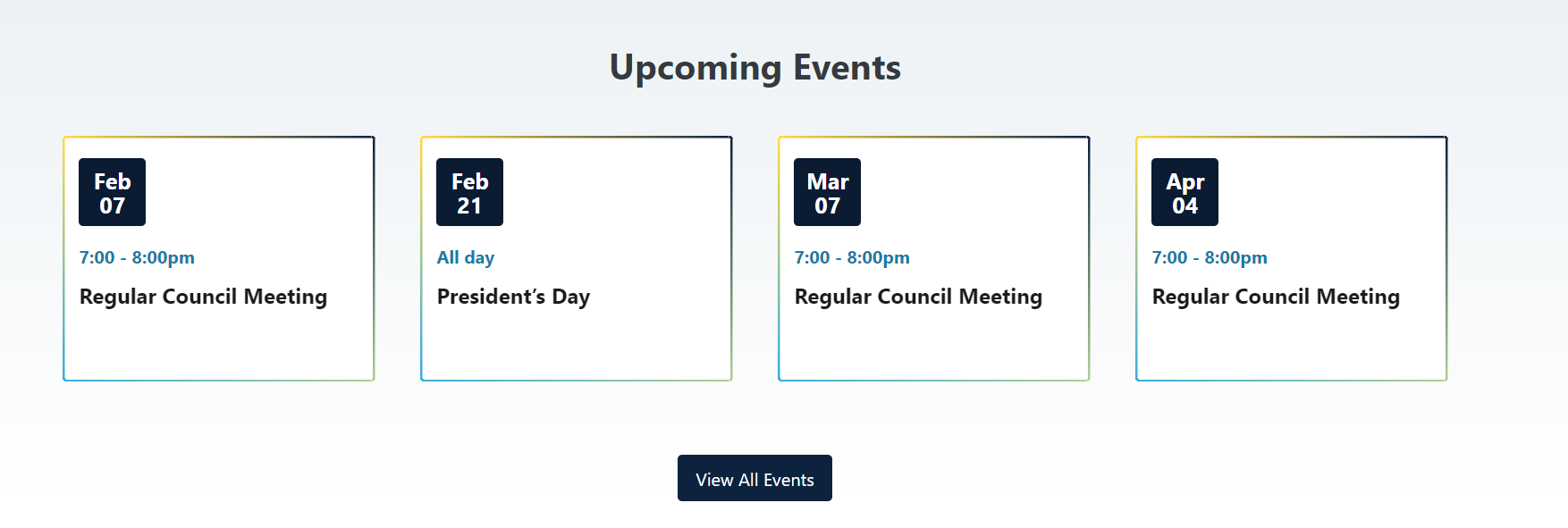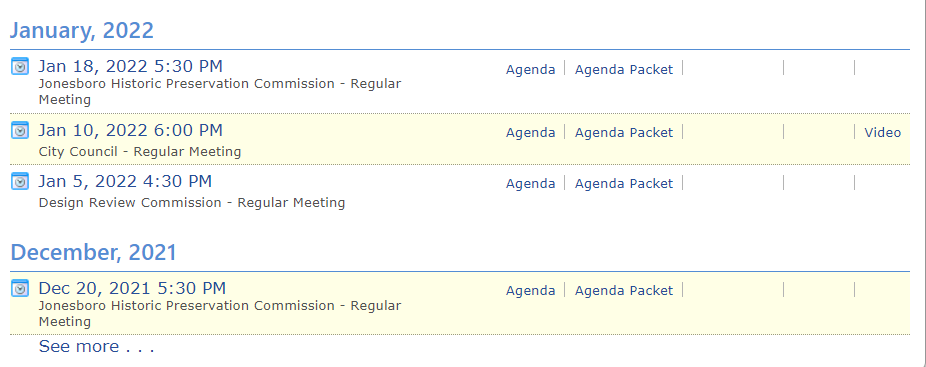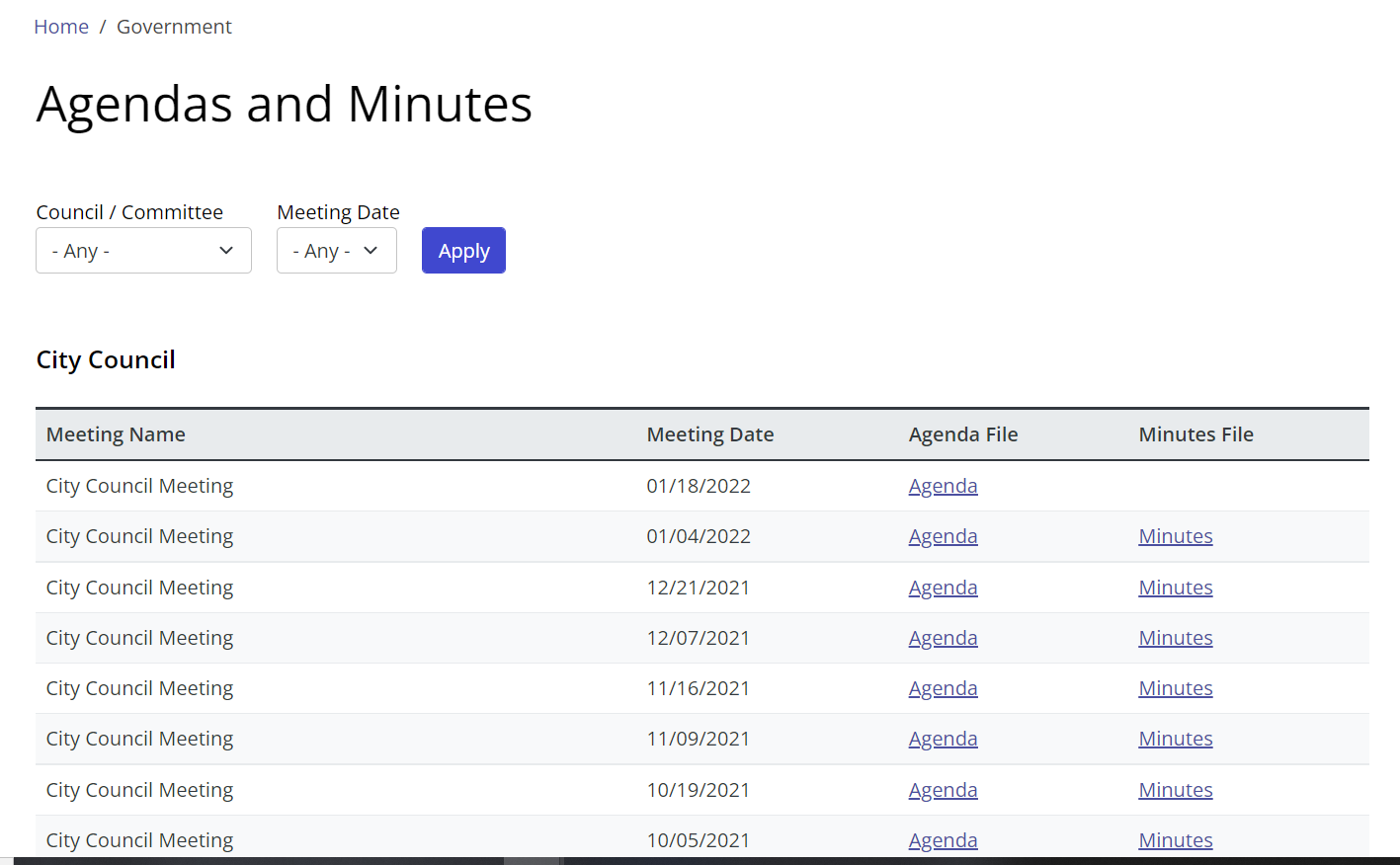 Victoria Boyko, Software Development Consultant
Victoria Boyko, Software Development Consultant
While you have many wonderful activities always going on at your municipality, the most important activity that forms the backbone of your work is the council meeting. Everything revolves around it. Your mayor and elected officials use them to communicate to the public, hear concerns, approve ordinances, and conduct business.
At a minimum, your website should keep the public informed about basic details related to council meetings. Yet, many municipal websites fail to do so. Many times, it’s not the fault of staff. They may struggle with an old, obsolete website that they cannot use because it requires technical expertise. Maybe it’s difficult to add or update content, and so it just doesn’t happen.
Is your website able to handle important tasks related to council meetings? Use this checklist to see if you need a website upgrade.
1. List council meetings on your calendar.
Do you list council meetings on your website calendar? If so, is it updated regularly and in a timely fashion? Do you even have a calendar on your website?
Many municipal websites lack calendars, or staff fail to populate calendars with information. Your municipal website should have an easy-to-find, easy-to-update, and easy-to-read calendar that provides information about upcoming (and even past) council meetings. Include meeting cancellations or rescheduling's, special meetings, and subcommittee, board, commission, and authority meetings.
You might also include a calendar widget on the homepage to make your calendar easy to find (along with adding to the aesthetic look-and-feel of your website). For example, Newell, Iowa features upcoming council meetings on its homepage.

2. Upload agendas to your website.
As soon as you can, upload agendas to your website to inform citizens about what you will discuss at the council meeting. For example, Jonesboro, Georgia provides both the agenda and agenda packet of their upcoming meetings in PDF form for people to view and download.

When you don’t provide agendas in a timely fashion, citizens can grow frustrated and feel your municipality lacks transparency. As you prepare for council meetings, make it a habit to upload agendas and packets to your website. The capability should exist for large PDFs to be uploaded to your website without any technical expertise or issues.
3. Upload minutes to your website.
Just as with agendas, minutes are another crucial aspect of transparency about council meetings. Try to post minutes as soon as possible after the meeting. If you delay, you may annoy citizens and members of the media who want to learn what took place. More importantly, cities and towns often announce a lot of good news and progress during council meetings and you want others to know about it.
For example, Jasper, Alabama offers quick links to archived minutes.

4. Extend your reach with social media.
In the old days of the internet, people primarily visited websites directly. Today, websites are still very important—but you also need a presence on social media to share information and get people to visit your website. That’s because people spend massive amounts of time on major social media platforms—and you want to be there.
Share information about council meetings, agendas, minutes, and other business on platforms such as:
- Facebook: People like to socialize, share news, and discuss topics among friends—so you want to be conversational and engaging in a slightly informal way on Facebook.
- Twitter: Short and sweet, and just the facts. Twitter is best if you think of it like broadcasting. You’re getting basic information out to the public about council meetings and providing website links if they want more information.
- YouTube: If you live stream your council meetings or provide videos later, then YouTube is an essential place to have these videos found beyond your municipal website.
5. Enhance your council meetings with video.
We mentioned YouTube and video above, and it’s worth focusing more on this valuable way to share council meetings with the public. With broadband internet so powerful today, videos and live video streaming are becoming common.
If you don’t live stream or, at the least, provide videos uploaded later of a council meeting on your website, then you’re missing out on engaging citizens who normally might not pay attention to what’s going on at your municipality. Many people may work during your council meetings, or not be able to make it to your physical location. Yet, they want to be informed about your municipality. Online council videos allow that to happen.
When uploading videos, it helps to label what’s discussed at specific times during the video so that people can jump to a desired part of the meeting. While you might want to disable public comments, you should also provide a link to your website in the video details section in case citizens want to follow up with you. If you’d like some tips about live video streaming, check out our blog post about this topic entitled “Live Video Streaming Tips and Best Practices for Cities.”
---
There are many ways to bring your council meetings online by sharing minutes and agendas on your website, extending your website outreach through social media, and providing videos of your meetings. If you need help with any of the items above, reach out to us today through the form below.


